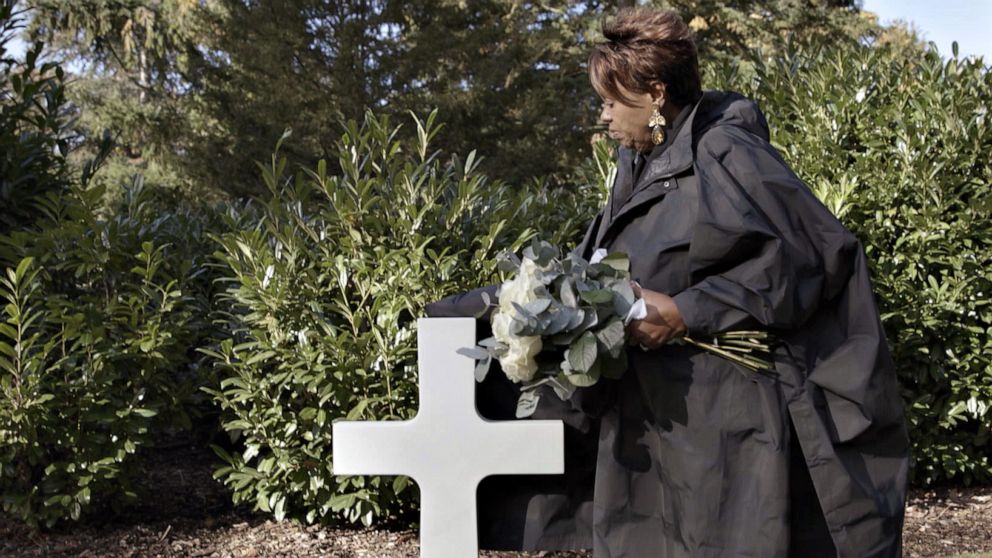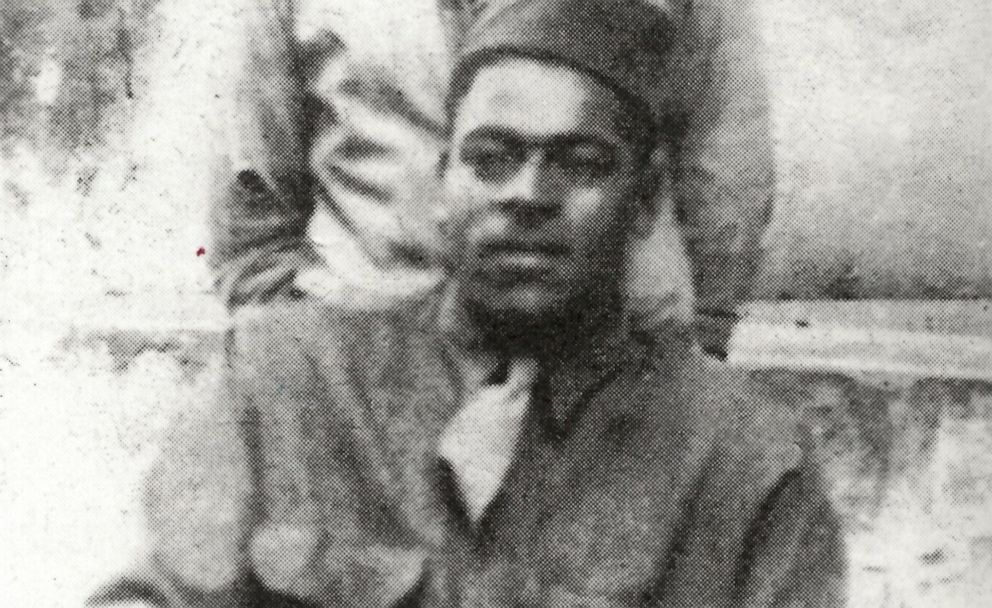Emmett Till's cousin visits grave of Till's father in new series
While most people know the story of Emmett Till's brutal murder, the death of his father, Louis Till, is much less well-known.
"Louis died before he could see what would happen to his son. Bo died before he could learn about what had happened to his father," Emmett's mother, Mamie Till-Mobley, wrote in her memoir, using a nickname for her son.
"Yet they were connected in ways that ran as deep as their heritage, as long as their bloodline," she added. "I was left behind to think about all the ways they were connected."
The final episode of the ABC documentary series "Let the World See," airs Thursday, Jan. 20 on ABC and Hulu. The episode details the legacy of Till-Mobley's fight for justice and the FBI's later investigations of Till's death, the latest of which was closed in December without any additional charges.
It also features the touching moments when Ollie Gordon, one of Till's cousins, travels to France to visit the grave of his father.
"It took me 70-some years, but I made the journey. Looking for one lost soul," she said when visiting Louis Till's grave in October. "I want to leave these flowers in honor of your son Emmett Louis Till, and his mother Mamie."

Louis Till was executed by the military in 1945, while serving in a segregated unit in Italy during World War II. He and another soldier had been convicted of murdering one woman and of raping two others.
"Mrs. Till, Mamie, received a telegram and the letter was a lie," said John Edgar Wideman, a novelist and the author of "Writing to Save a Life: The Louis Till File," in an interview for "Let the World See."
"It left out the truth of what had happened to her husband," he added. "It said, 'soldier died outside of combat by his own fault.'"
Through his book, Wideman has cast doubt on the official version of the circumstances surrounding Louis Till's death. Decades after Till was sentenced to death, Wideman received transcripts of his court-martial from the U.S. Army.
"[There were] no eyewitnesses, no one ever identified Till or his friends in the courtroom when the victims were sitting there," Wideman said. "Never any identifications, all kind of circumstantial evidence."
A key witness, who was in the house the night the crime took place, also changed his account of what happened, Wideman said. The witness originally claimed to have heard the voice of a white man entering the home, but later on, while being interviewed, said the man may have been Black.
Historians have also noted that during World War II, Black soldiers serving in the U.S. Army were subject to many of the same restrictions of the Jim Crow South. In addition to having segregated units, there were no Black officers and white officers presided over court-martials.
"He was executed just because. She did not say that he raped her, but they still killed him," said Angie Thomas, author of the novel "The Hate You Give."
Louis Till's ring, which was returned to Till-Mobley after his execution, was used to identify Emmett Till's body after he was killed. Louis Till's conviction and execution also came up after the trial for his son's killers.

After Roy Bryant and J.W. Milam were acquitted of murdering Emmett Till by an all-white jury, the federal government tried to prosecute them for kidnapping, which they had admitted to in the first trial. But a grand jury did not indict Bryant and Milam after Louis Till's army record was leaked to the public.
"It was found out that it was leaked information about Louis Till in order to make Emmett Till look like the son of a predator and therefore a predator himself," said Gloria J. Brown-Marshall, a civil rights attorney and playwright. "And then give some credence that perhaps ... he wasn't this innocent 14-year-old, that he could possibly have tried to attack Carolyn Bryant."
"Once that information came out, it was impossible to try the Milams for kidnapping," added Wideman. "And that was end of the story."
Louis Till was buried in a special plot for people who had been dishonorably discharged and executed by the Army at an American military cemetery in France. According to Wideman, of the 96 people buried in that plot, 83 of them are people of color.
"He's laying in this less than honorable area for a crime that we're still not sure that he committed," Gordon said of Louis Till as she visited his grave. "But he's not forgotten."
"He had a child that met his demise at such a young age of 14," she added. "Emmett Till's mother carried the torch to keep the legacy alive which spearheaded the civil rights movement."
ABC News' Jeanmarie Condon and Fatima Curry contributed to this report.



